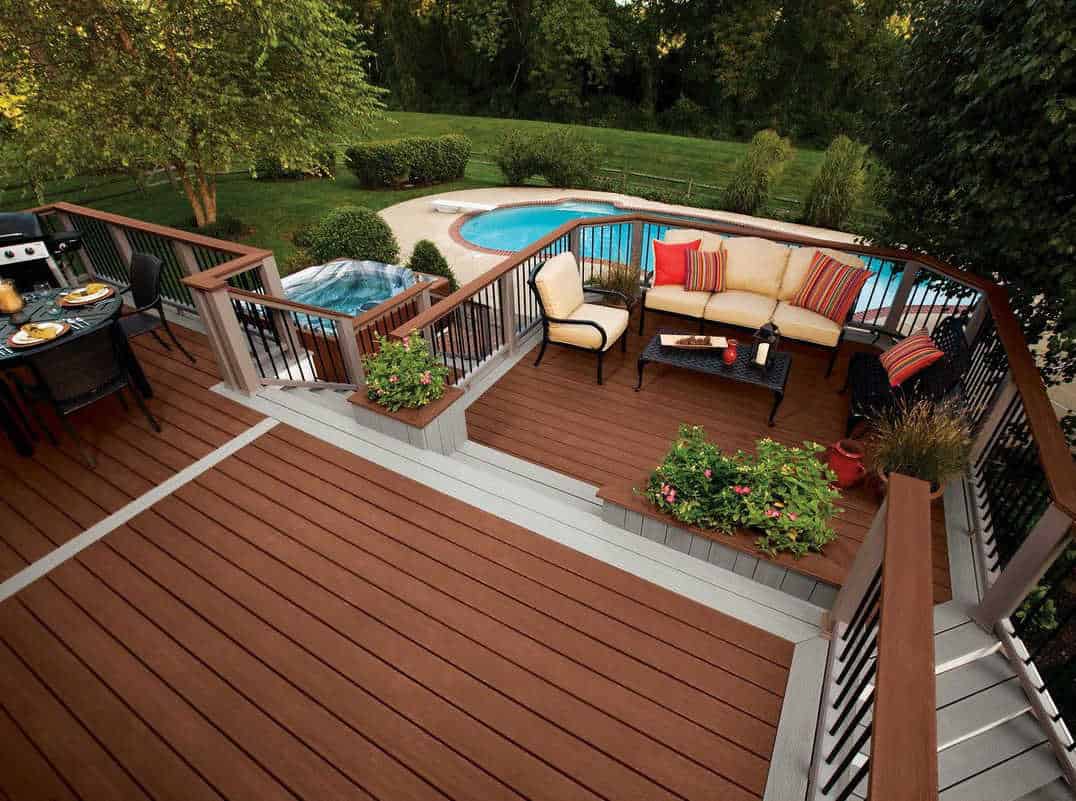Imagine stepping out onto your deck, surrounded by nature's beauty, enjoying the fresh air and basking in the warmth of the sun. Outdoor living spaces like decks have become an integral part of our lifestyles, providing a retreat from the busyness of daily life. However, as we strive to create these outdoor havens, it is essential to consider the environmental impact of our choices.
In this article, we will explore sustainable decking solutions that allow you to design and enjoy your outdoor space while minimising harm to the environment.
Understanding the Importance of Sustainable Decking
In the realm of outdoor design, where aesthetics and functionality merge, it is crucial to acknowledge the significance of sustainable decking. This understanding encompasses embracing practices that prioritise environmental preservation and minimising our carbon footprint.
By opting for eco-friendly decking solutions, we not only enhance the beauty of our outdoor spaces but also contribute to the well-being of our planet. Sustainable decking entails choosing materials that are renewable, recyclable, or sourced from responsibly managed forests.
It involves a conscientious selection process that takes into consideration factors such as durability, maintenance requirements, and the overall ecological impact. By prioritising sustainability in our decking choices, we can ensure longevity and reduce waste while simultaneously making a positive impact on our environment.
Choosing the Right Material for Eco-Friendly Decking
When it comes to choosing the right material for eco-friendly decking, there are several options that can help reduce environmental impact and promote sustainable outdoor design. One highly popular choice is composite decking, which combines recycled wood fibers and plastic to create a durable and low-maintenance alternative to traditional timber. The use of recycled materials not only prevents further deforestation but also reduces waste that would otherwise end up in landfills. Another option is bamboo decking, which offers a renewable and rapidly replenishing resource. Bamboo grows incredibly fast, making it an excellent choice for eco-conscious homeowners. Furthermore, bamboo has natural resistance to pests and decay, reducing the need for harmful chemical treatments. Its strength and durability also make it suitable for outdoor spaces, ensuring longevity without sacrificing sustainability.

Timber Decking with Environmentally Certified Wood
In the realm of sustainable decking, opting for timber decking with environmentally certified wood is a prudent choice. Certified wood comes from responsibly managed forests, where trees are harvested in a way that ensures their growth and regeneration. By selecting timber decking made from certified wood, you contribute to the preservation of our intricate ecosystems and protect biodiversity. When you choose environmentally certified wood for your decking, you're also supporting sustainable forestry practices that promote carbon sequestration. Trees absorb carbon dioxide from the atmosphere as they grow, helping to mitigate climate change. By using certified wood in your outdoor design, you actively participate in the fight against global warming.
The Benefits of Sustainable Decking for the Environment
The Benefits of Sustainable Decking for the Environment: In this verdant world we call home, it is incumbent upon us to find ways to coexist harmoniously with nature. Sustainable decking presents a golden opportunity to do just that. By opting for eco-friendly decking materials, we can significantly reduce our environmental footprint and contribute to the preservation of our planet's precious resources.
One of the primary benefits of sustainable decking is its role in conserving forests. By choosing timber decking sourced from responsibly managed forests, we support sustainable forestry practices and help prevent deforestation. Additionally, certified wood options such as FSC (Forest Stewardship Council) or PEFC (Programme for the Endorsement of Forest Certification) ensure that every plank used in our outdoor spaces originates from well-managed and socially beneficial forests.
Another advantage lies in the reduction of carbon emissions. Many sustainable decking materials, such as composite or recycled plastic boards, are manufactured using recycled content or byproducts that would have otherwise ended up in landfills. By repurposing these materials into durable and aesthetically pleasing decks, we give them a new lease on life while reducing greenhouse gas emissions associated with their disposal.
Conclusion
In the realm of outdoor design, the choices we make can have a profound impact on the environment. By opting for sustainable decking solutions, we not only enhance the beauty of our outdoor spaces but also contribute to a greener and healthier planet. Let us join hands in shaping a world where every deck becomes a statement of environmental consciousness, inviting us to enjoy nature while preserving it for generations to come.
Source: Sustainable Decking Solutions: How to Make Eco-Friendly Choices in Outdoor Design






